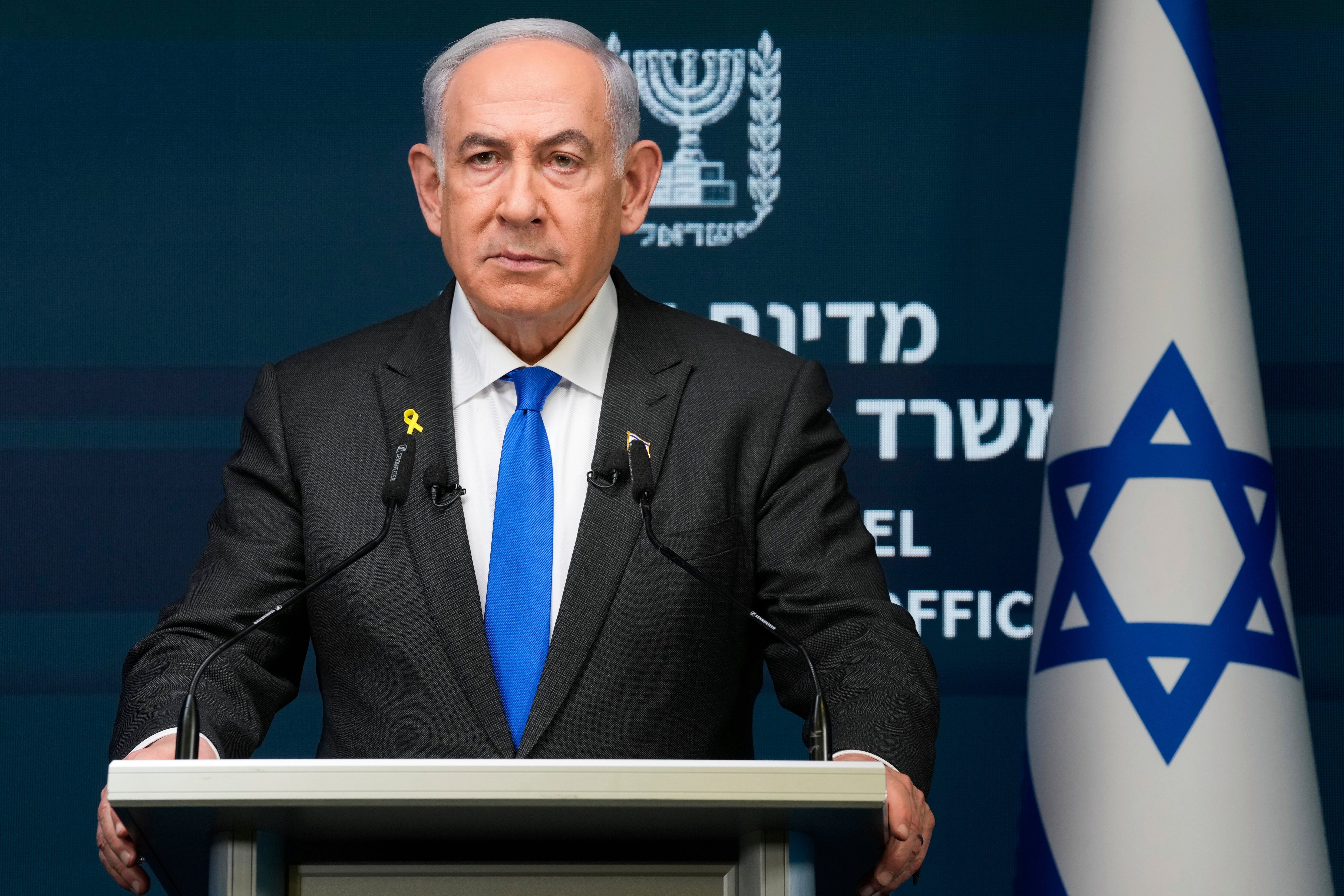What really lies behind the decision to restrict arms sales to Israel
Is our government’s move to ban some arms sales just gesture politics? It depends who you think the gesture is intended for, writes Mark Almond


To judge by the indignation from Israel and its friends here, David Lammy’s revocation of nearly 10 per cent of British export licenses for the few weapons it sells to the IDF and Israeli security services was a bombshell.
The Foreign Office had decided that “a clear risk that [British-made] equipment… could be used in violation of international law”.
Israel’s prime minister Benjamin Netanyahu decried the UK’s decision, coming only days after Hamas executed six hostages, as “shameful”. He said it would embolden Hamas and was tantamount to ignoring the fate of British-Israeli joint citizens who were killed on 7 October.
Among Keir Starmer’s massive parliamentary majority, the silence of backbench MPs is remarkable. Labour Friends of Israel and the party’s sharp critics of Israel over the war in Gaza appear to be avoiding weakening the government by criticising it so early in its term.
The last few weeks have been difficult for the prime minister. He has not enjoyed a honeymoon period. The dropping of pre-election pledges, including cutting winter fuel payments for pensioners, has damaged his public standing. Even his firm handling of the riots has led to corrosive charges of two-tier policing of public order, not least in how the police handle anti-Israeli protests compared with anti-immigrant disturbances.
Why now, then, has Starmer’s government taken such a high-profile decision to sanction Israel?
Savaging the PM as “two-tier Keir” overlooks the fact that throughout his career, Starmer has been doggedly committed to the idea of international law and the need for governments to abide by it. Only two weeks into his tenure, he assured the Commons of his unwavering commitment to the European Court of Human Rights in Strasbourg. He assured MPs: “We will never withdraw from the European Convention on Human Rights.”
The prime minister backed the International Criminal Court, promoted originally by Tony Blair five years before invading Iraq. Starmer sees institutions like the ICC and its sister, the International Court of Justice (also based in The Hague), as key judicial ways of imposing and protecting human rights.
Unlike the US, the UK is a member of the ICC. If Benjamin Netanyahu and other senior Israelis were convicted of crimes against humanity, then Britain – and more precisely British officials and ministers – could be held co-responsible for any acts carried out using British munitions, components or platforms.
The defence secretary, John Healey, has admitted that Whitehall fears its exports could be “in breach” of international law and ICJ rulings. So even if our “commitment to defend Israel” remains if attacked by Iran, some exports are still risky, to put it mildly.
A mixture of principle and self-interest underlies Whitehall’s decision. But the problem is that the writ of the international law and courts so admired by Starmer only runs in countries that choose to accept them.
In the last few days, we have seen Vladimir Putin pay a state visit to Mongolia despite it being signed up to the ICC’s jurisdiction and he facing charges of crimes against humanity in Ukraine. Mongolia is reluctant to antagonise its two powerful neighbours, Russia and China, who reject its jurisdiction and happen to control that country’s borders, energy imports and trade.
That’s the cruel reality of international law. It is two-tiered.
As Thucydides taught us 2,500 years ago, the strong do what they want and the weak suffer what they must – unless some other strong power steps in. Britain doesn’t have that power. The US has no intention of spending its power on quixotic jousts for justice that could cost it a lot and may not succeed.
The US talks about rules-based international order much more often than international law. Washington alone decides what the rules are – and applies them to its allies, especially Israel, on the basis of political calculation and national interest – not blind justice. Maybe it can be no other way.
In any case, legalistic arguments that Hamas is not a recognised government and therefore not subject to much of international law seem farcical in the face of brutal realities.
So is our government’s decision just gesture politics? I would argue that it depends who you think the gesture is intended for.
Not Netanyahu, whose bluster is about rallying Israeli opinion behind him. Nor the Foreign Office, which can’t really believe the IDF’s targeting decisions will be affected by this British pinprick.
The problem with the government’s decision is that it is gesture politics aimed at appealing to themselves. Starmer signals his virtue, but no one with power is paying much attention.
Mark Almond is a British author and former lecturer in Modern History at Oriel College, Oxford






Join our commenting forum
Join thought-provoking conversations, follow other Independent readers and see their replies
Comments